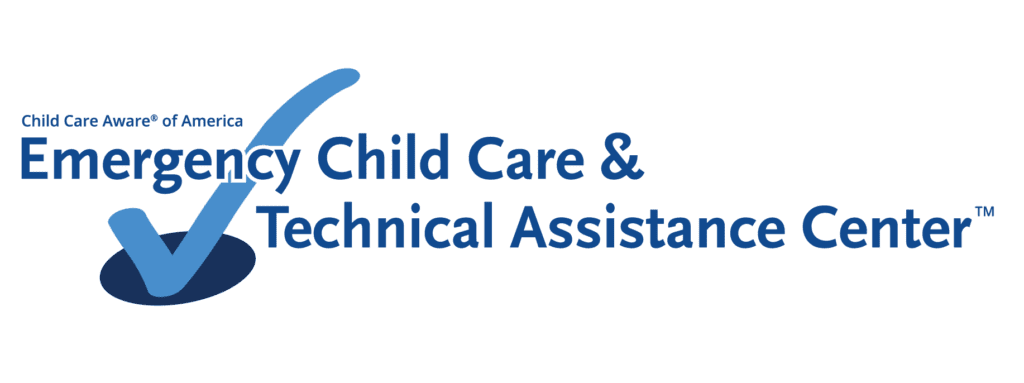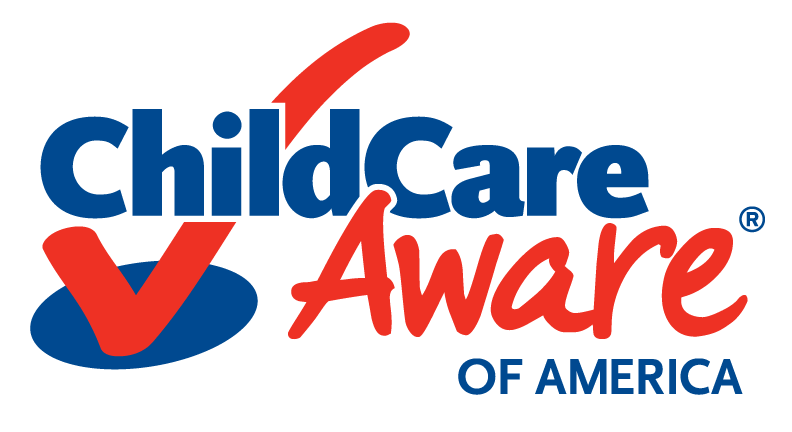
About ECCTAC | TA for Systems-Level Leaders
Child Care Aware® of America recently launched an initiative to support the child care community during the COVID-19 crisis, and beyond. Below, you will find FAQs and technical assistance resources for child care providers.
-
What is the current impact of the COVID-19 outbreak on child care throughout the U.S.?
CCAoA has heard from child care providers around the country who are concerned about the impact of the coronavirus on the families they serve, their staff and their business. We also released our new report, Picking Up the Pieces: Building a Better Child Care System Post-COVID-19 which analyzes the pandemic’s impact on child care quality, affordability and supply.
Providers will need additional support. While this is a quickly evolving situation, we’re listening closely to your needs and sharing your voices with policymakers. Share your story to let us know how coronavirus has impacted your business and community.
We continue map states’ response to the pandemic, which you can find on our State by State Map. You can also review our State Ratio and Policy table that tracks changes to policies in your state on a monthly basis.
-
What business supports are available for child care providers?
- We know that obtaining program supplies is a key challenge for child care programs right now. Here are some suggested collaborations (PDF download) that have worked in some communities. Also available in Spanish.
- Types of Cash Help For Providers During the Coronavirus Pandemic resource. Also available in Spanish.
- The Administration for Children and Families released guidance on Temporarily Repurposing Head Start and Early Head Start Centers- Partnering to Support Emergency Child Care During the COVID-19 Crisis.
Federal Funding Opportunities
- The U.S. Small Business Administration Disaster Loan Assistance Program – The SBA can provide up to $2 million to help meet financial obligations and operating expenses to small businesses facing an economic injury that it wouldn’t have faced had the disaster not occurred. Small businesses and most nonprofits are eligible. Learn more about the program in this explainer from the Bipartisan Policy Institute.
- The Families First Coronavirus Response Act Medicaid and CHIP Provisions Explained
- The U.S. Chamber of Commerce has a guide dedicated to Coronavirus Emergency Loans Guide and Checklist for Small Businesses and Nonprofits which addresses common questions such as how much you can borrow, what lenders are looking for and eligibility.
-
Should your child care program stay open?
Check out our decision tree in this blog post: Answer the questions in the chart to determine whether your program should stay open or temporarily close during the coronavirus crisis. You can download the chart as a PDF to save or print it. Also available in Spanish.
The CDC also released updated Guidelines for Child Care Programs that Remain Open. It should be used in conjunction with CDC’s guidance for administrators of child care programs and K-12 schools and does not supersede state and local laws and policies for child care programs.
-
What health and safety procedures should child care providers follow?
Most child care providers are already familiar with the steps needed to prevent the spread of infection and are increasing their vigilance because of the coronavirus. This includes washing hands properly and often. Make sure children and adults are using proper coughing and sneezing techniques. Routine cleaning and disinfecting are also second nature to providers, so they are most likely already a step ahead of other businesses.
Providers may also want to implement our Grab ‘n’ Go Resources which help child care programs create or supplement an existing infectious disease response plan. The resources include templates and sample letters for communicating with staff and families about closures or enhanced health and safety measures.
These resources for child care providers are now available in eight languages: English, Spanish, Arabic, Chinese, Korean, Russian, Tagalog and Vietnamese. As the needs of providers change and as we learn more about COVID-19, we will update these documents. The most recent update is from November 25, 2020.
CCAoA also suggests that local providers reach out to their local or state Child Care Resource and Referral (CCR&R) agency to collaborate on how to respond to COVID-19. Because of the work that CCR&Rs do and the important role they play in the child care field, CCR&Rs are uniquely positioned to promote child and community health.
CCAoA also advocates for workers to have access to paid sick days to care for themselves or for sick loved ones. One of the best ways to prevent the transmission of viruses is to ensure that sick staff can stay home. Without job-protected paid sick days, this is an untenable choice for too many people – families and child care providers alike – who cannot risk losing wages or being fired even if they are sick.
For more specific tips about the coronavirus, check out these resources:
- The Centers for Disease Control (CDC) – The CDC is the home of the most up-to-date information about what is going on with coronavirus in the U.S.
- The American Academy of Pediatrics -The AAP has a series of resources that can help you protect your health and your business in situations where lots of children or adults are getting sick.
- The World Health Organization’s Myths about COVID-19 – Covers common myths, such as whether or not the virus can spread in a hot climate (it can).
-
How can child care professionals support families during the coronavirus outbreak?
The best way that child care professionals can provide support to families is by continuing to share related resources that will help them talk with their children and cope during this stressful time.
Child Care Aware® of America created a separate page for families answering questions around child care options and safety during COVID-19. Please consider sharing these resources with the families in your community.
You may find these additional resources helpful as well:
- Center for the Study of Traumatic Stress has created two helpful documents, Discussing Coronavirus with Children (PDF Download) and Finding the Right Words (PDF Download)
- National Head Start Association funding opportunity for states and their communities (PDF Download)

Need more support?
Fill out the form to request personalized support from Child Care Aware® of America’s technical assistance team.



